02/01/2024
Pasture fence insulators
Pasture fence insulators are the link between pasture fence posts and strands, tapes or wires, i.e. the conductor material. They insulate the conductor material from the ground and the post and should therefore be checked regularly, as a broken insulator allows current to flow out of the wrong place. Insulators are generally available for solid fences, i.e. wooden or recycled posts, and for steel or fiberglass posts. Plastic posts have the advantage that the insulators are virtually already integrated into the post. There are many different types of insulators, so they can be selected according to the circumstances and area of application. Here are a few examples:
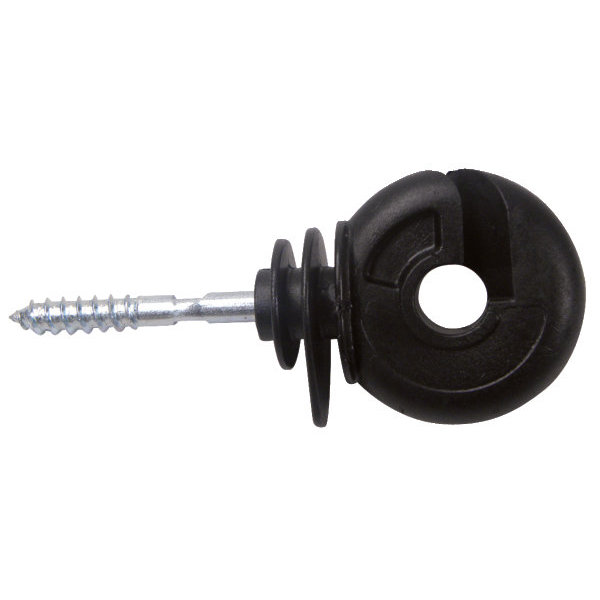
Pasture fence ring insulators
for use with thinner pasture fence ropes, strands and wires. Pasture fence ring insulators are an important component in the construction of pasture fences. They are used to insulate the electric current on the fence and thus keep the cattle safely inside the fenced area. These insulators are used in the form of rings that are attached to the posts of the pasture fence.
The ring insulators are generally made of robust plastic that is highly resistant to weathering and UV radiation. This ensures a long service life for the insulators, even under demanding outdoor conditions.
Ring insulators are installed by threading the fence wire through the ring and attaching the insulator to the post. Most ring insulators have special hooks or clips that enable simple and secure attachment.
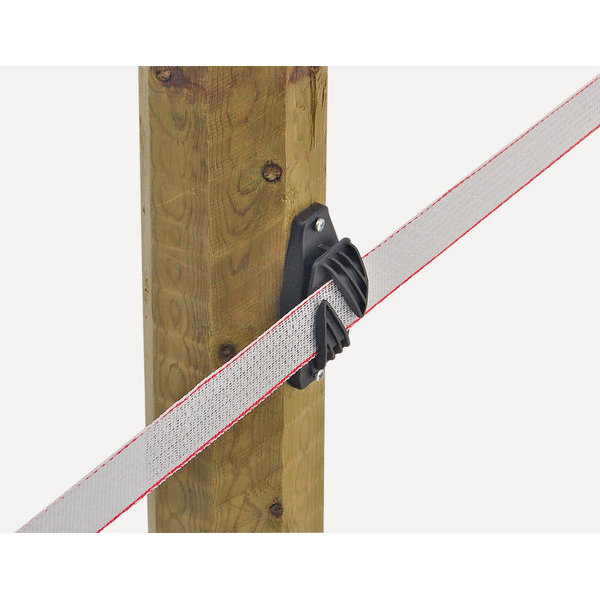
Pasture fence wide band insulators
Pasture fence broadband insulators are special components used in the construction of pasture fences. They are used to insulate the broadband material of the fence and ensure safe electrical conductivity.
Broadband materials such as polywire, electrical tape or stranded wire are often used for pasture fencing as they provide greater visibility for animals and enable better conductivity. However, broadband insulators must be used to ensure that the electric current is not transferred to the ground or other objects.
The broadband insulators are made of robust plastics that have a high insulating capacity and are also UV-resistant to ensure long-term outdoor durability. They are installed along the fence and hold the broadband material in place while maintaining the electrical connection.
The installation of wide fence insulators is simple and requires no special tools. They are simply screwed or clamped onto the fence post and the broadband material is fed through the holes provided. The insulators should be checked regularly to ensure that they are still working well and are not damaged.
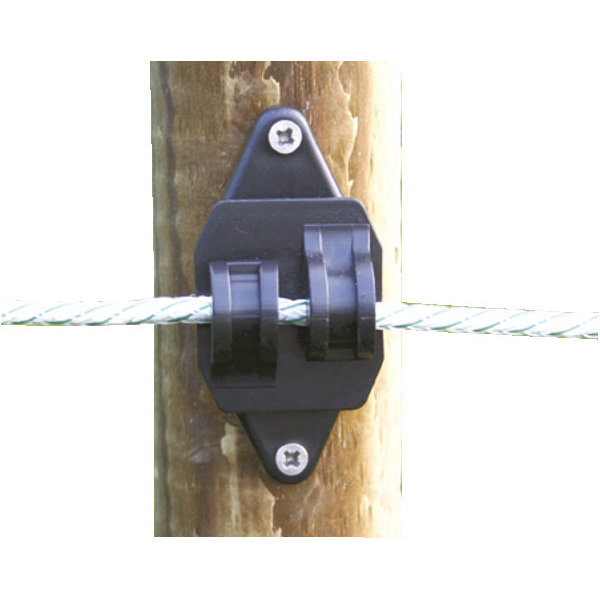
Pasture fence rope and wire insulators
Similar to ring insulators, in some cases also suitable for thicker ropes and can be handled differently in terms of installation/application.
Rope insulators are specially developed for use with pasture fence ropes. They are made of robust plastic material that is both UV-resistant and weatherproof. These insulators are attached along the course of the fence and keep the pasture fence rope taut.
Rope insulators offer a simple and effective way of insulating the fence rope while maintaining good conductivity for the electric current. They are available in various designs, including corner insulators, T-insulators and end insulators.
Wire insulators are available in various designs, depending on whether they are to be used for straight fence lines, corners, T-joints or ends of the fence. They provide reliable insulation of the wire and ensure safe current conduction in the fence.
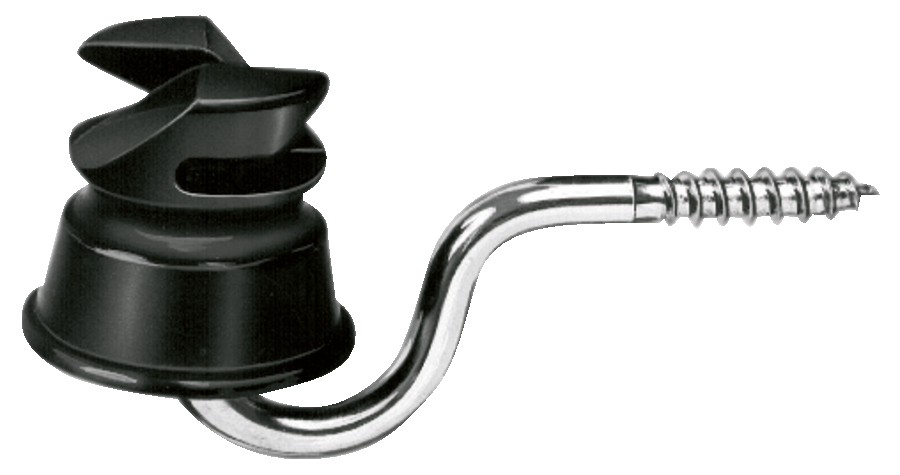
Pasture fence slot insulators:
The slot insulators are usually made of robust plastic or fiberglass and are generally available in the form of elongated rods or plates. They have narrow slots or notches in which the fence wire can be securely fastened.
The slot insulators have several advantages. They allow the fence wire to be installed quickly and easily by holding it securely in place. In addition, they insulate the wire from the ground to ensure safe current flow and minimize the risk of current loss. They also provide high stability and resistance to weathering, which increases the longevity of the fence.
There are different types of slot insulators that have been specially developed for different types of fences, such as wooden or metal fences. It is important to choose the right type of insulator according to the fence material and the individual requirements of the pasture fence.
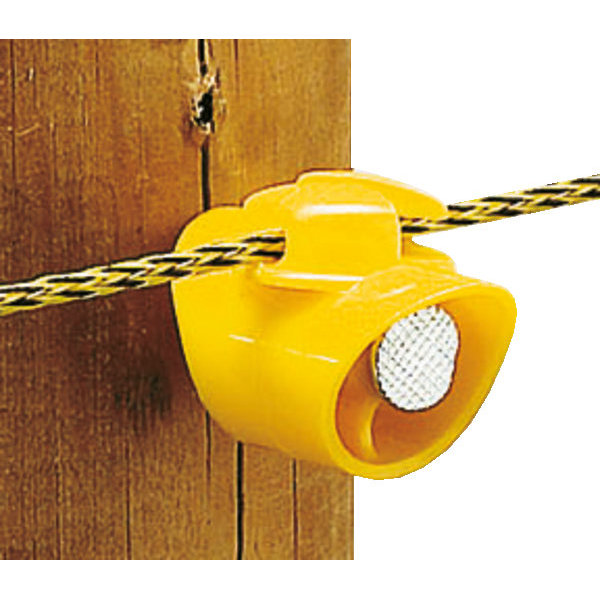
Pasture fence nail insulators
Pasture fence nail insulators are special fastening elements that are used for the construction of pasture fences. They are used to insulate the flow of electric current along the fence and create a safe environment for animals.
The nail insulators are made of robust plastic and have an insulating inner structure that prevents the current from being transferred to the metal nail. This ensures that the electrical impulse remains inside the fence, thus ensuring maximum efficiency of the pasture fence.
Installing the nail insulators is simple and straightforward. They are simply attached to wooden posts or other suitable surfaces with a hammer. The nail insulator holds the fence wire securely in place while providing electrical insulation.
Pasture fence nail insulators are available in various designs to meet the requirements of different fence types. They are suitable for use in private pasture fences as well as on farms.
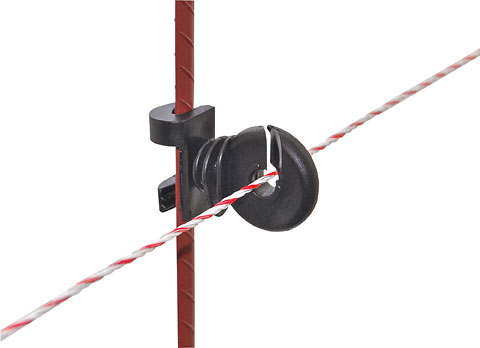
Willow fence clamp and slip-on insulators
Replacement insulators for fiberglass, round steel or oval steel posts. Can be clamped, plugged or screwed on.
Pasture fence clamping and slip-on insulators are important components for the construction and maintenance of pasture fences. They are used to conduct the electric current into the fence wire or fence tape and insulate it at the same time to ensure the flow of current on the fence while protecting animals and people from electric shock.
Clamp-on and slip-on insulators are available in various designs and materials to meet the individual requirements of a pasture fence. They can be made of plastic, fiberglass or ceramic. While plastic insulators are frequently used, ceramic insulators are particularly popular due to their high insulating properties and resistance to weathering.
Clamp insulators are attached to wooden posts or metal poles. They are equipped with a clamp that holds the fence wire or fence tape in place and conducts the current. Push-on insulators, on the other hand, are simply pushed onto the post and provide a holder for the fence wire or fence tape.
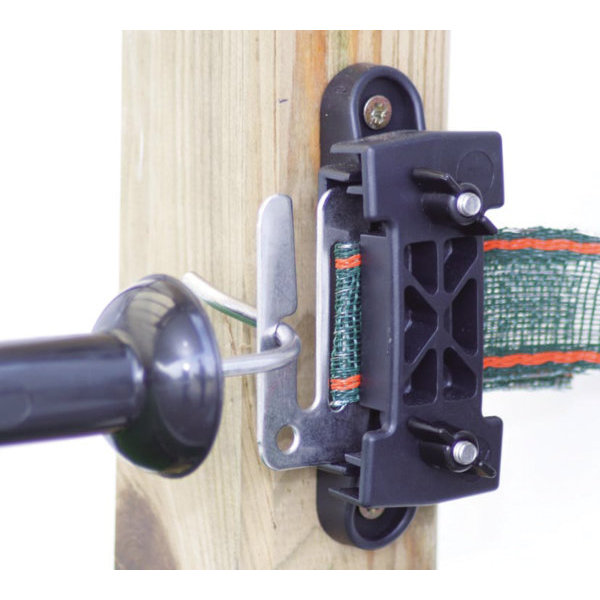
Pasture fence corner and guy insulators
Corner and guy insulators are important components for the construction and stability of a fence. They are used to effectively secure the fence wire at corners and on longer sections and at the same time insulate the electric current flowing through the fence.
Corner insulators have been specially developed for the corners of a pasture fence. They enable a secure and stable attachment of the fence wire to the corner posts. Their shape ensures optimum tensile strength and prevents the wire from sagging or loosening. Corner insulators are available in various designs, e.g. as screw insulators, wood thread insulators or bolt insulators. They are usually made of robust plastic or glass fiber reinforced plastic to ensure high durability and weather resistance.
Guy insulators are used to support and control the tension of the fence wire at regular intervals. They are used to fix the fence wire to the intermediate posts and prevent the wire from sagging or falling. Guy insulators are often designed as ring insulators and enable quick and easy installation of the fence wire. They are also made of robust plastic to withstand external influences.
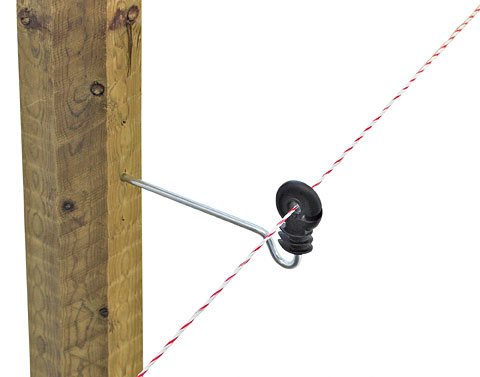
Pasture fence spacer insulator
The distance insulator is made of insulating plastic material that isolates the electric current and prevents it from being transferred to the fence. This minimizes the risk of electric shocks to animals or people touching the fence.
The distance insulator is fitted along the fence post and keeps the electric fence wire at a certain distance from the fence material, such as wood or metal. This prevents the fence wire from short-circuiting through contact with the fence material.
There are different types of spacer insulators, including screw insulators, nail insulators and clip insulators. They are selected according to the type of fence material and the specific requirements of the pasture fence.
The correct distance between the fence wire and the fence material is crucial for the effectiveness of the pasture fence. Too much distance can result in animals being able to easily climb over the fence, while too little distance increases the risk of short circuits. It is therefore important to follow the manufacturer's instructions and choose the correct spacer insulator for the fence.
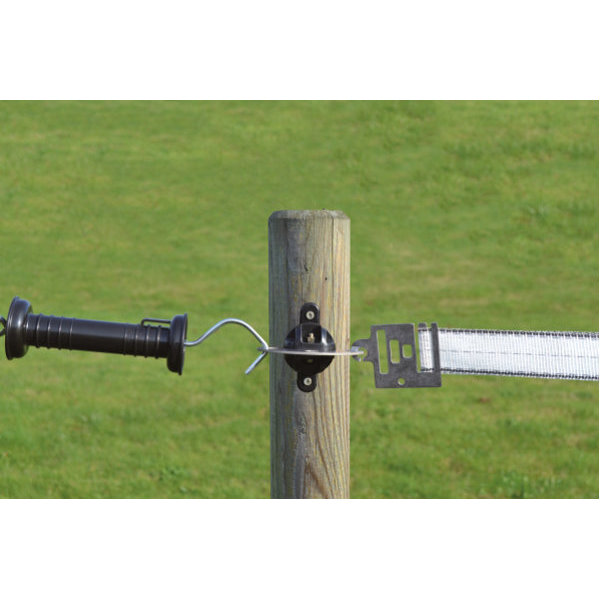
Pasture fence gate handle insulators
Die Torgriffisolatoren bestehen aus isolierendem Material wie Kunststoff und werden an den Enden des Weidezaun-Tors befestigt. Sie dienen dazu, den Stromfluss im Zaun zu unterbrechen und gleichzeitig den Benutzern einen isolierten Griff zu bieten, um einen elektrischen Schlag zu vermeiden.
The gate handle insulator is usually equipped with a hook or eyelet to attach the electrically conductive wire or tape of the pasture fencing system. In addition, it has a spring mechanism that allows the user to open and close the gate while maintaining the current flow in the rest of the fence.
There are different types of gate handle insulators, including those suitable for use with wire or tape. They are available in different sizes and designs to meet the individual needs and requirements of pasture fences.
The use of electric fence gate insulators offers several advantages. They allow easy and safe passage through the pasture fence gate without touching the electric fence. This is particularly important to avoid injury to people and animals.
The gate handle insulators also make it easier to maintain the pasture fencing system, as they make it easier to open and close the gate. This simplifies access to the pasture or fenced area.

Pasture fence screw-in aids
When erecting a pasture fence, it is important to attach the insulators correctly to ensure safe and reliable electrical insulation. One practical solution for this are screw-in aids for insulators.
The screw-in aids are specially developed metal pieces that are threaded and can be screwed into the wooden posts of the pasture fence. They serve as a stable base for attaching the insulators.
The insulators can be installed easily and securely using the fence screw-in aids. They provide a solid anchorage in the posts so that the insulators are firmly and stably in place. This ensures reliable insulation and minimizes the risk of current leaks or short circuits.
The screw-in aids are available in different versions, depending on the requirements of the pasture fence. They come in different lengths and diameters to ensure an optimum fit for the posts. They are also usually made of robust and durable material such as galvanized steel to ensure high stability and resistance to weathering.
The use of fence screw-in aids for insulators makes the installation and maintenance of the fence much easier. They save time and effort as they eliminate the need to drive in nails or drill holes. They also allow flexible positioning of the insulators along the fence to ensure the best electrical protection.
